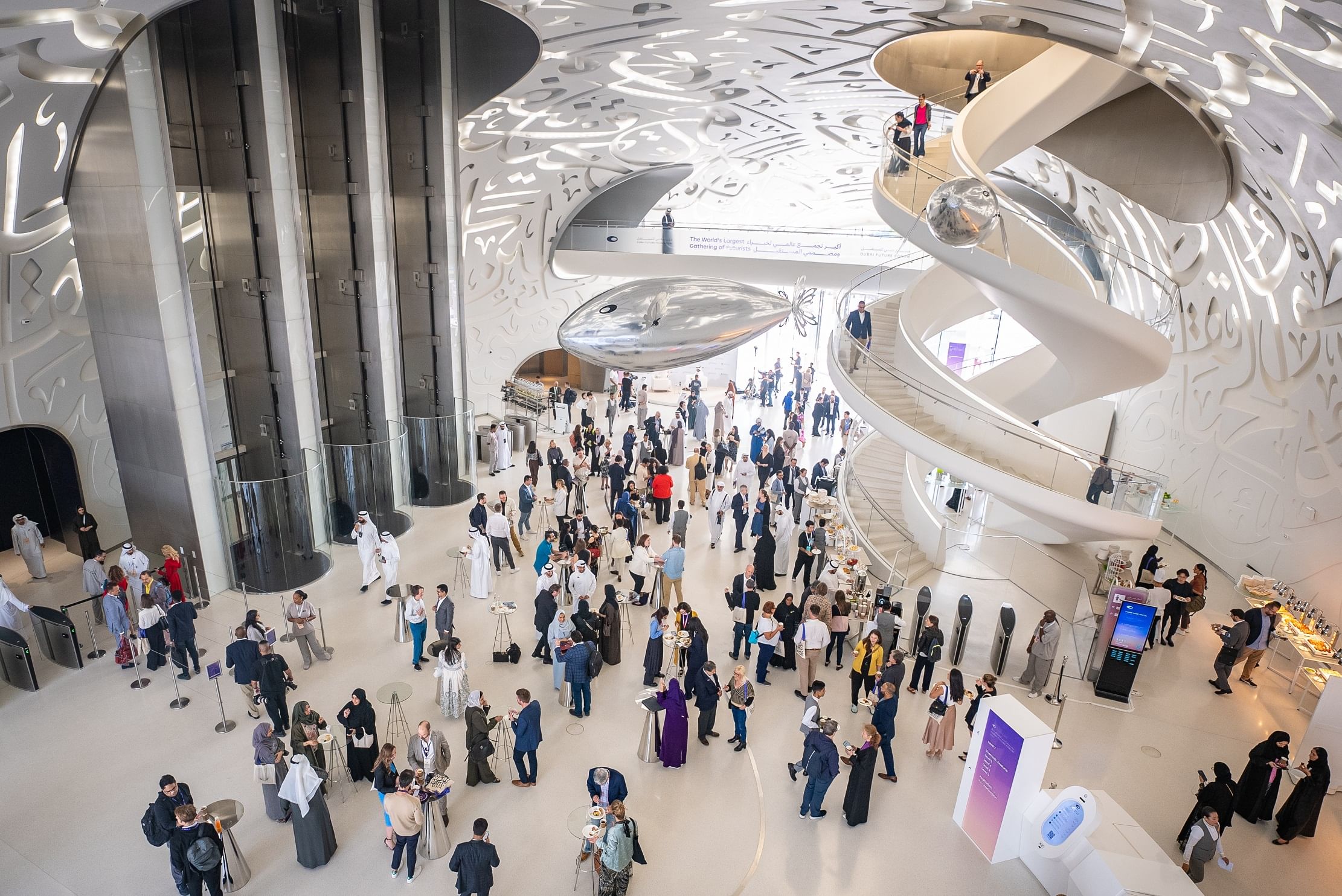Dubai Future Forum 2023, organised by the Dubai Future Foundation, convened around 2,500 people to address some of the world’s greatest challenges and opportunities at the Museum of the Future.
More than 150 experts in future foresight shared their insights on the near and far future across 70 sessions, keynotes, and workshops.
Speakers shared their predictions in spheres including space, sustainability, the environment, energy, food, health, medicine, education, technology, artificial intelligence, the digital economy, and governance.
Participants predicted that the next decade will witness a paradigm shift in technologies with the rise of completely new technologies, vastly outpacing the development of technologies from the past 70 years.
Speakers addressed the role of youth in shaping the future. The forum heard how placing future generations at the heart of government policies, initiatives, and programs helps ensure the creation of a better tomorrow. They also discussed the importance of empowering future generations through upskilling, to ensure that they have the tools needed for future jobs in sectors such as AI and space.
Participants heard how ‘silicon hospitals’, based on smart semiconductors implanted in the body, will, in the future, act as ‘tiny hospitals’ that accompany people. These will provide accurate medical diagnoses around the clock, which will reduce healthcare costs and lessen the need for surgical interventions. Experts suggested that a new epidemic occurring in the near future could carry a US$1 trillion healthcare bill for the world.
The forum heard how strokes could soon be diagnosed in just 10 minutes – instead of 10 hours – thanks to advances in technology. Other diseases could similarly be treated through super early diagnosis.
Experts noted that new technologies replacing traditional drugs and devices could reduce the cost of medical trials by up to 10 times. Additionally, AI technologies are expected to reduce the cost of producing medicines by US$1 billion and the costs of medical devices by up to US$100 million.
Children will soon have the power to conduct game changing science, the forum heard. They will be able to combine their curiosity, collaborative nature and empathetic personalities with AI and quantum computing to impact the world while they are still young. The emergence of ‘citizen scientists’ will help the world to solve its greatest challenges. Currently, just 0.1 percent of the world’s population are scientists.
The forum heard from an entire crew of astronauts and cosmonauts, including UAE astronauts Hazza Al Mansoori and Dr Sultan Al Neyadi, who were part of NASA’s Expedition 69 mission. The astronauts described how they conducted more than 200 scientific experiments during their 186-day mission.
Revelations during the forum included the fact that global electricity consumption increased by 1.1 percent in 2022 compared to 2021. Delegates were also informed that carbon emissions have increased by 50 percent since the Industrial Age. Around 24 percent of emissions come from agriculture, and 1 million species currently face extinction, the participants were told.
Participants listened to discussions on strategies to mitigate future challenges and turn them into opportunities. One of these challenges is that more than 3 billion people lack access to affordable energy.


